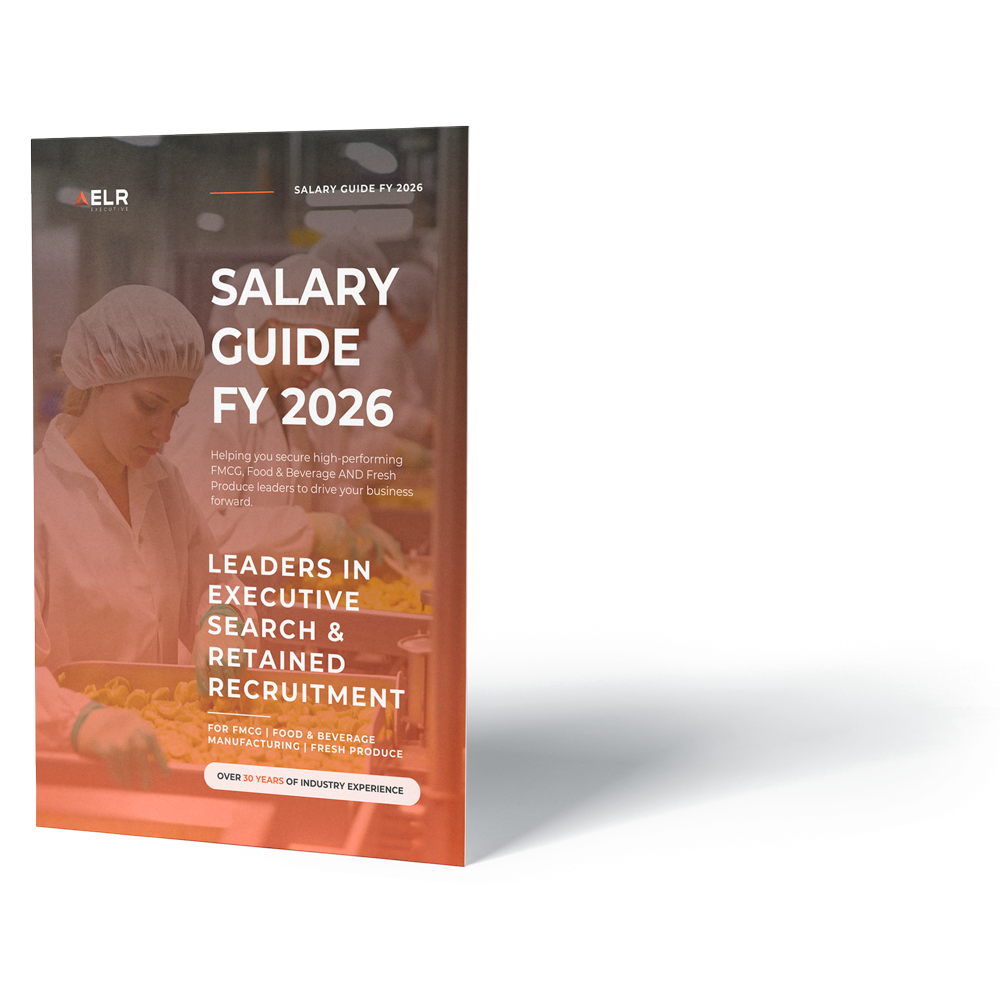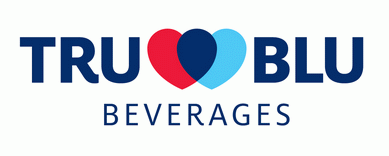SECURING HIGH-PERFORMING FMCG, Food & Beverage AND Fresh Produce leaders to drive your business forward
Executive Search and Retained Recruitment across ANZ & APAC, from senior executives to key management roles.
TRUSTED BY Industry
Subscribe to our LinkedIn Edition - Unwrapped
Get the stories that don’t make the headlines, but do shape hiring, culture, and performance.
How much are you
overpaying
or
underpaying your execs?
80% of employers are misaligned on executive pay.
Our FY2026 Salary Guide exposes hidden salary gaps by function, title and category across FMCG, food & beverage manufacturing and fresh produce.
Built for boards, CEOs and HRDs who want to get it right.

Recognising Your Industry's Unique Challenges
Our deep understanding of the FMCG sector ensures we deliver leadership solutions that align perfectly with your business needs.
Deep Dive into Your Business
Our process starts with a comprehensive consultation, during which we immerse ourselves in your business’s strategic goals, culture, and unique challenges. We recognise that every assignment is unique.
Proactive Talent Mapping
We don't wait for talent to come to us. We proactively map the FMCG landscape, targeting the high-performing professionals who aren't actively seeking new roles, ensuring you're connected with the best talent.
Precision in Selection
Our rigorous selection process, including behavioural assessments and cultural alignment checks, ensures that the leaders we place are a fit for the role and a driving force for your company's growth.
Our Services
Leveraging our 30 years of experience in executive search in FMCG and food and beverage manufacturing, we specialise in delivering tailored solutions for executive and senior roles.
Executive Assessment
Our assessment services use detailed psychometric and behavioural evaluations to ensure you find the right skills and cultural fit within or outside your organisation.
Talent Mapping
Our talent mapping services provide you with critical insights into the market, including competitor intelligence and identification of key players.
Our exclusive six-month guarantee
We stand by the quality and impact of every placement we make. In the unlikely event that a successful candidate departs within six months of commencement, whether due to performance, cultural fit, or unforeseen circumstances, ELR Executive will conduct a full replacement search at no additional cost.
This guarantee reflects our commitment to long-term partnerships and measurable outcomes, not just placements.
Contact us today to
discuss how we can help you secure the right leadership for your FMCG or Food & Beverage or Fresh Produce business.
Decades of FMCG Experience
With over 30 years of executive leadership in the FMCG industry, John Elliott delivers unmatched expertise in building high-performing leadership teams. His deep industry knowledge and hands-on experience ensure your business secures the high performers needed to drive growth and innovation—partner with John to leverage his insights and elevate your organisation's leadership.

We set out to create an executive search firm that truly understands your industry, solving hiring challenges with insights from those who’ve walked in your shoes.” - John Elliott, Founder.

Expertise Across Every Role and Sector Across FMCG, Food & Beverage Manufacturing and fresh produce
Specialising in C-suite, NED, executive management, heads of department, and senior management roles tailored to various functional areas and categories.
Functional Areas
Categories
Stop relying on outdated recruitment methods—partner with FMCG experts who consistently deliver leaders that drive your business forward.
Industry Insights & Updates
With our extensive experience in the FMCG sector, we know which latest news is turning heads in the industry. Our updates help you stay informed and connected, ensuring you remain relevant in a constantly evolving market.
faq
What roles does ELR Executive typically recruit?
ELR Executive specialises in recruiting for a broad range of high-level roles within the FMCG sector, including Non-Executive Directors, C-Suite positions, and senior management roles in areas such as Finance, Human Resources, Manufacturing, Marketing, Procurement, Operations, Retail Operations, Sales, Supply Chain & Logistics, and Technical functions.
Why should we use ELR Executive?
With over 30 years of experience in the FMCG industry, ELR Executive is uniquely positioned to deliver top-tier leadership talent. Our customised, rigorous search methodology ensures that we find highly skilled leaders who are a perfect fit for your company's culture and long-term goals. Our 98% placement rate and 100% retention rate speak to our ability to deliver high-performing talent that drives growth and success.
What clients/companies do we represent?
ELR Executive partners with some of the most renowned FMCG businesses across Australia, working within key industry categories such as Bakery and Confectionery, Beer and spirits, Beverage Manufacturing, Dairy, Food Manufacturing, Health and wellness, Meat and poultry Processing, Pet Food Manufacturing, Pharmacy, Vitamins and supplements, and Retail Operations.
What happens in the event of a problem hire?
At ELR Executive, we stand by the quality of our placements. In the unlikely event of a problem hire, we offer a six-month replacement guarantee, ensuring your organisation continues to benefit from high-performing talent without disruption. Our process includes rigorous assessments and regular follow-ups to minimise risks, providing a smooth and successful transition for your new leader.
How does the exec search process work?
Our executive search process begins with a deep dive into your organisation's needs, goals, and culture. We then map the talent landscape, leveraging our extensive network and market knowledge to identify and engage with both active and passive candidates. We conduct rigorous assessments, including in-depth interviews and behavioural evaluations, to ensure a strong fit. Throughout the process, we maintain full transparency, providing regular updates and ensuring you have the information you need to make informed decisions.
So how do we get started?
Getting started with ELR Executive is simple. Schedule a consultation with our team to discuss your specific needs and goals. From there, we'll work with you to develop a tailored strategy for your executive search, providing ongoing support and expertise at every process step. Contact us today to find leaders who will drive your FMCG business forward.
What is an Interim executive?
An interim executive is a senior professional who temporarily fills a key leadership role within an organisation. These executives are often brought in during periods of transition, crisis, or sudden vacancy that needs to be filled quickly. Interim executives are experienced leaders who can provide stability, strategic direction, and management expertise while the company searches for a permanent replacement or navigates a challenging period. Their roles vary widely, from CEO and CFO positions to senior management roles, depending on the organisation's needs.
































